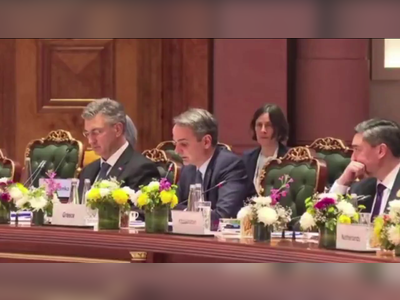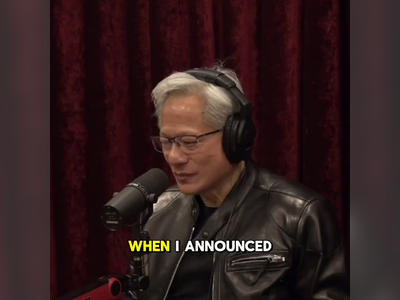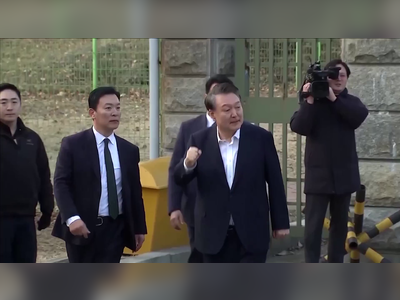Why has the Budapest Airport become so expensive, which the government wants to buy at any cost?
In just three months, the budget has accumulated almost the entire year's planned deficit, with the finance minister recently announcing further austerity measures of 675 billion forints - postponing that much in investment expenditure.
However, the government is relentless in its pursuit to acquire Budapest Airport Zrt. While the total purchase price was rumored to be around 4 billion euros (1500–1600 billion forints) last year, Minister of National Economy Márton Nagy shared that the state's share would be less than 774 billion forints.
* Last autumn, it leaked that a 4 billion euro buy-back action was being prepared to acquire the Ferihegy airport, and it was later revealed that this time, the state's business partners would not be the “omnivorous” Mol and real estate guru Dániel Jellinek, but foreign investors.
* In the first phase, the Hungarian state will purchase an 80 percent ownership stake in the airport, with the remaining 20 percent going to the French company Vinci Airports. Following the transaction, the state's ownership could decrease to 51 percent as the government plans to sell part of its shares to a Qatari investor.
* Based on the 80 percent stake and the Budapest Airport's nearly 1.5 billion euro debt, 24.hu estimated that the purchase price to be paid by the Hungarian government could be around 774 billion forints.
* However, MÁRTON NAGY last stated that the price will be more favorable than previously reported in the media.
The Minister of National Economy did not provide a concrete figure on how much the government would spend on the airport purchase, but implied that it would cost less than the estimated 774 billion forints for an 80 percent share. He also did not elaborate on the situation after the Qatari purchase, but a simple calculation suggests that the price for 51 percent could be around 500 billion forints.
So far, it's certain that 848.8 million euros, approximately 328.5 billion forints, have been transferred to the government's "major shopping" company, Corvinus International Investment Ltd., enabling the state to acquire shares of Budapest Airport Zrt. (BA). As previously reported, Márton Nagy decided this before last Christmas, and the founding document mentioned that the amount was intended for the purchase of an 80 percent stake in BA. (Corvinus had several capital increases last year, but only the mentioned 848.8 million euros were specifically indicated for the airport acquisition.) Regarding funding, Nagy previously mentioned asset sales and loans, including the sale of state shares in Erste Bank, Vienna Insurance, and Yettel.
On January 31, another capital increase took place in Corvinus:
* The still state-owned 23.22 percent share package of Antenna Hungária Zrt. (AH) was contributed,
* In addition, there was a cash increase of 305 million euros.
Valued at 167.5 billion forints, the state's minority share package in AH, a national provider of terrestrial digital television and analog radio broadcasting, which also engages in event organizing, and the cash is worth around 120 billion forints at the current exchange rate. According to 444.hu, citing a source close to the government, the new capital increase was also for the airport purchase as more funds were needed. However, in response to our data request, the Ministry of National Economy (NGM) did not provide this straightforward answer, stating that "the non-cash asset contribution does not relate to a transaction since it was a contribution" and that the cash increase was "not necessary for the Budapest Airport Zrt. acquisition."
When asked if the cash was needed for the purchase of Spanish train manufacturer Talgo S.A., also on the agenda, the NGM refused to answer, citing the decision-making process. Despite not getting closer to the exact purchase price of BA, it became clear that
regardless of the budget situation, the government has not abandoned investments, diverting resources to BA and other ventures.
Gyula Budai, as early as 2012, mentioned a trillion forints
To understand why the airport operator is worth up to 4 billion euros, we need to go back over two decades. In 1997, the Horn government made a deal with a Canadian company that built Terminal 2B for 100 million dollars and, in return, received the rights to operate the Ferihegy airport for 12 years. The first Orbán government found the contract unfavorable but didn't terminate it. Instead, at the end of 2001, legislative changes were made to kick out the investor. The state established a national airport operator, hence forcing the foreign investor to leave. This move cost Hungarian taxpayers dearly, with an international arbitration court later awarding 76.2 million dollars (18 billion forints at the time) in damages to the plaintiff, plus legal costs.
When the next MSZP-SZDSZ government attempted to privatize in the mid-2000s, they guaranteed:
to not deter investors with the previous example, full compensation in case of any diminution of the BA's property management rights was promised in a government resolution.
Advisors, paid an unusually high fee of 640 million forints under the circumstances at the time, were tasked with incorporating securities into the contract for the duration of the 75-year concession, covering scenarios where the current government could potentially disable airport operations. In such cases, the purchase price, along with accrued interest, would have to be refunded. Not a small sum, Gyula Budai, the commissioner for accountability, placed the state's potential liability from the contract, such as in the event of Malév's collapse, at nearly 1,000 billion forints in 2012. However, the then German majority owner talked about 1.5 billion euros, about 450 billion forints at the time.
Such guarantees made it difficult to corner BA operators, and they were not really inclined to give up control of Ferihegy airport – explained our source familiar with the details of the privatization contract, on why negotiations previously reached 3, then 4.44 billion, and last year 4 billion euros. True, even a bomb-proof contract does not protect the foreign concessionaire from harassment by the state, with examples of unpleasantness in recent years, such as when the government torpedoed BA's financial arrangement for a loan during the Covid pandemic, which would have covered staff salaries.
Britain's BAA paid a premium price for the airport operator due to the dream-like guarantees and promising growth prospects at the time of privatization. The 1.9 billion euros, more than 30 times the EBITDA (earnings before interest, taxes, depreciation, and amortization), was considered exceptionally high compared to deals at the time, which had a 13-16 times multiplier. However, at the dawn of budget airlines, an annual passenger growth rate of 25-30% seemed plausible, as did reversing the 70-30 ratio of landing fees to commercial revenues from airport shops.
Compared to twenty years ago, a double price is now offered for the Budapest airport.
There is still potential for revenue generation, both in commercial activities and increasing passenger traffic – this was the justification by Hungarian investors for their 4.44 billion euros bid in the last round. They estimated that air traffic would return to pre-Covid levels by 2023, expecting to exceed 20 million passengers within five years and a 15-year return on investment.
WHY DID THE ORBÁN GOVERNMENT SELL 25% OF BA?
Less talked about now, but the privatization was ultimately completed by the second Orbán government: the socialists sold 75 percent minus one vote of BA shares, leaving 25 percent plus one vote in state hands. This was sold in 2011 for 36.6 billion forints after the Fidesz government exercised its option to sell from the privatization contract. The move was justified by the expectation that the state could not anticipate significant profits from the stake, and the two board positions did not provide significant influence over the company. There is truth to this, but the situation would be somewhat different if the state did not have to make an offer for 100 percent, and through its delegates, it would have continual insight into the company's affairs, insiders believe.
Around 2011, the state could not expect dividend income, as the company's profits were consumed by the repayment of loans taken for the purchase price, while traffic growth fell short of projections. However, this situation changed:
BA's operations turned profitable in 2016,
In 2018-2019, the company reported taxable profits of 24 and 29 billion forints, respectively, and in 2022, it was at 30 billion forints. Stabil annual dividends of 6-8 billion forints, with development and investment costs borne by others, is not a bad setup – our source pointed out. However, the coronavirus pandemic disrupted this picture, with 2020 and 2021 bringing a total loss of 72 billion forints, requiring owners to contribute to loss settlement.
SÁNDOR DEMJÁN WOULD HAVE BUILT A RAPID TRANSIT TO FERIHEGY
We have yet to receive a rational explanation as to why it is so important for the Hungarian state to buy out the current foreign investors.
* It is a strategic facility, pivotal for tourism, a key sector of the Hungarian economy.
* Investment and development are needed to provide better services and increase passenger traffic.
* A fixed-track connection between the airport and the city center is necessary.
These arguments have been made in favor of the purchase, but none directly relate to whether an airport is state, municipal, privately, or jointly owned. Under normal circumstances, both private and public owners are interested in maximizing profits, which can be achieved by increasing traffic, creating attractive conditions for passengers with new destinations, developments, and better services. Thus, there is no need for the state to take over an airport operator or establish a railway connection. Plans for the latter have existed for some time:
* In the early 2000s, when BA was still state-owned, the late SÁNDOR DEMJÁN, with Trigránit, proposed a 60 billion private investment,
* Then, after privatization, in 2006, the economic ministry led by JÁNOS KÓKA, was considering a 40-45 billion railway construction in a PPP model (public-private partnership).
Both plans, however, led to nothing.
Our sources interpret the airport acquisition as the Hungarian government not rejecting foreign and/or private ownership, as the current buyout is planned with a foreign investor – the deal with French Vinci for a 20 percent stake – and the state will sell additional shares to a Qatari investor, retaining only 51 percent. It is rather an escape from the current structure, where any government action disabling the operator could end in massive compensation, and the government has limited say in operations, development directions, and the realization of investments.
Given the expected increase in traffic and plans for a Chinese cargo hub, it is likely that huge constructions will start at the airport in the near future.
At the time of privatization, the goal was not only to secure a substantial income for the central treasury but also to have the concessionaire carry out upcoming developments, avoiding these expenses on the state budget for the following decades. Now the opposite is happening as the state is entering just when further investments are due. NER (National Cooperation System) is known to favor constructions, with billions quickly made from concrete pouring. Plus, some speculate that the state may not remain a majority owner in BA for long and that over time it might transition to economic circles close to the government.
* Last autumn, it leaked that a 4 billion euro buy-back action was being prepared to acquire the Ferihegy airport, and it was later revealed that this time, the state's business partners would not be the “omnivorous” Mol and real estate guru Dániel Jellinek, but foreign investors.
* In the first phase, the Hungarian state will purchase an 80 percent ownership stake in the airport, with the remaining 20 percent going to the French company Vinci Airports. Following the transaction, the state's ownership could decrease to 51 percent as the government plans to sell part of its shares to a Qatari investor.
* Based on the 80 percent stake and the Budapest Airport's nearly 1.5 billion euro debt, 24.hu estimated that the purchase price to be paid by the Hungarian government could be around 774 billion forints.
* However, MÁRTON NAGY last stated that the price will be more favorable than previously reported in the media.
The Minister of National Economy did not provide a concrete figure on how much the government would spend on the airport purchase, but implied that it would cost less than the estimated 774 billion forints for an 80 percent share. He also did not elaborate on the situation after the Qatari purchase, but a simple calculation suggests that the price for 51 percent could be around 500 billion forints.
So far, it's certain that 848.8 million euros, approximately 328.5 billion forints, have been transferred to the government's "major shopping" company, Corvinus International Investment Ltd., enabling the state to acquire shares of Budapest Airport Zrt. (BA). As previously reported, Márton Nagy decided this before last Christmas, and the founding document mentioned that the amount was intended for the purchase of an 80 percent stake in BA. (Corvinus had several capital increases last year, but only the mentioned 848.8 million euros were specifically indicated for the airport acquisition.) Regarding funding, Nagy previously mentioned asset sales and loans, including the sale of state shares in Erste Bank, Vienna Insurance, and Yettel.
On January 31, another capital increase took place in Corvinus:
* The still state-owned 23.22 percent share package of Antenna Hungária Zrt. (AH) was contributed,
* In addition, there was a cash increase of 305 million euros.
Valued at 167.5 billion forints, the state's minority share package in AH, a national provider of terrestrial digital television and analog radio broadcasting, which also engages in event organizing, and the cash is worth around 120 billion forints at the current exchange rate. According to 444.hu, citing a source close to the government, the new capital increase was also for the airport purchase as more funds were needed. However, in response to our data request, the Ministry of National Economy (NGM) did not provide this straightforward answer, stating that "the non-cash asset contribution does not relate to a transaction since it was a contribution" and that the cash increase was "not necessary for the Budapest Airport Zrt. acquisition."
When asked if the cash was needed for the purchase of Spanish train manufacturer Talgo S.A., also on the agenda, the NGM refused to answer, citing the decision-making process. Despite not getting closer to the exact purchase price of BA, it became clear that
regardless of the budget situation, the government has not abandoned investments, diverting resources to BA and other ventures.
Gyula Budai, as early as 2012, mentioned a trillion forints
To understand why the airport operator is worth up to 4 billion euros, we need to go back over two decades. In 1997, the Horn government made a deal with a Canadian company that built Terminal 2B for 100 million dollars and, in return, received the rights to operate the Ferihegy airport for 12 years. The first Orbán government found the contract unfavorable but didn't terminate it. Instead, at the end of 2001, legislative changes were made to kick out the investor. The state established a national airport operator, hence forcing the foreign investor to leave. This move cost Hungarian taxpayers dearly, with an international arbitration court later awarding 76.2 million dollars (18 billion forints at the time) in damages to the plaintiff, plus legal costs.
When the next MSZP-SZDSZ government attempted to privatize in the mid-2000s, they guaranteed:
to not deter investors with the previous example, full compensation in case of any diminution of the BA's property management rights was promised in a government resolution.
Advisors, paid an unusually high fee of 640 million forints under the circumstances at the time, were tasked with incorporating securities into the contract for the duration of the 75-year concession, covering scenarios where the current government could potentially disable airport operations. In such cases, the purchase price, along with accrued interest, would have to be refunded. Not a small sum, Gyula Budai, the commissioner for accountability, placed the state's potential liability from the contract, such as in the event of Malév's collapse, at nearly 1,000 billion forints in 2012. However, the then German majority owner talked about 1.5 billion euros, about 450 billion forints at the time.
Such guarantees made it difficult to corner BA operators, and they were not really inclined to give up control of Ferihegy airport – explained our source familiar with the details of the privatization contract, on why negotiations previously reached 3, then 4.44 billion, and last year 4 billion euros. True, even a bomb-proof contract does not protect the foreign concessionaire from harassment by the state, with examples of unpleasantness in recent years, such as when the government torpedoed BA's financial arrangement for a loan during the Covid pandemic, which would have covered staff salaries.
Britain's BAA paid a premium price for the airport operator due to the dream-like guarantees and promising growth prospects at the time of privatization. The 1.9 billion euros, more than 30 times the EBITDA (earnings before interest, taxes, depreciation, and amortization), was considered exceptionally high compared to deals at the time, which had a 13-16 times multiplier. However, at the dawn of budget airlines, an annual passenger growth rate of 25-30% seemed plausible, as did reversing the 70-30 ratio of landing fees to commercial revenues from airport shops.
Compared to twenty years ago, a double price is now offered for the Budapest airport.
There is still potential for revenue generation, both in commercial activities and increasing passenger traffic – this was the justification by Hungarian investors for their 4.44 billion euros bid in the last round. They estimated that air traffic would return to pre-Covid levels by 2023, expecting to exceed 20 million passengers within five years and a 15-year return on investment.
WHY DID THE ORBÁN GOVERNMENT SELL 25% OF BA?
Less talked about now, but the privatization was ultimately completed by the second Orbán government: the socialists sold 75 percent minus one vote of BA shares, leaving 25 percent plus one vote in state hands. This was sold in 2011 for 36.6 billion forints after the Fidesz government exercised its option to sell from the privatization contract. The move was justified by the expectation that the state could not anticipate significant profits from the stake, and the two board positions did not provide significant influence over the company. There is truth to this, but the situation would be somewhat different if the state did not have to make an offer for 100 percent, and through its delegates, it would have continual insight into the company's affairs, insiders believe.
Around 2011, the state could not expect dividend income, as the company's profits were consumed by the repayment of loans taken for the purchase price, while traffic growth fell short of projections. However, this situation changed:
BA's operations turned profitable in 2016,
In 2018-2019, the company reported taxable profits of 24 and 29 billion forints, respectively, and in 2022, it was at 30 billion forints. Stabil annual dividends of 6-8 billion forints, with development and investment costs borne by others, is not a bad setup – our source pointed out. However, the coronavirus pandemic disrupted this picture, with 2020 and 2021 bringing a total loss of 72 billion forints, requiring owners to contribute to loss settlement.
SÁNDOR DEMJÁN WOULD HAVE BUILT A RAPID TRANSIT TO FERIHEGY
We have yet to receive a rational explanation as to why it is so important for the Hungarian state to buy out the current foreign investors.
* It is a strategic facility, pivotal for tourism, a key sector of the Hungarian economy.
* Investment and development are needed to provide better services and increase passenger traffic.
* A fixed-track connection between the airport and the city center is necessary.
These arguments have been made in favor of the purchase, but none directly relate to whether an airport is state, municipal, privately, or jointly owned. Under normal circumstances, both private and public owners are interested in maximizing profits, which can be achieved by increasing traffic, creating attractive conditions for passengers with new destinations, developments, and better services. Thus, there is no need for the state to take over an airport operator or establish a railway connection. Plans for the latter have existed for some time:
* In the early 2000s, when BA was still state-owned, the late SÁNDOR DEMJÁN, with Trigránit, proposed a 60 billion private investment,
* Then, after privatization, in 2006, the economic ministry led by JÁNOS KÓKA, was considering a 40-45 billion railway construction in a PPP model (public-private partnership).
Both plans, however, led to nothing.
Our sources interpret the airport acquisition as the Hungarian government not rejecting foreign and/or private ownership, as the current buyout is planned with a foreign investor – the deal with French Vinci for a 20 percent stake – and the state will sell additional shares to a Qatari investor, retaining only 51 percent. It is rather an escape from the current structure, where any government action disabling the operator could end in massive compensation, and the government has limited say in operations, development directions, and the realization of investments.
Given the expected increase in traffic and plans for a Chinese cargo hub, it is likely that huge constructions will start at the airport in the near future.
At the time of privatization, the goal was not only to secure a substantial income for the central treasury but also to have the concessionaire carry out upcoming developments, avoiding these expenses on the state budget for the following decades. Now the opposite is happening as the state is entering just when further investments are due. NER (National Cooperation System) is known to favor constructions, with billions quickly made from concrete pouring. Plus, some speculate that the state may not remain a majority owner in BA for long and that over time it might transition to economic circles close to the government.
Translation:
•
Translated by AI
AI Disclaimer: An advanced artificial intelligence (AI) system generated the content of this page on its own. This innovative technology conducts extensive research from a variety of reliable sources, performs rigorous fact-checking and verification, cleans up and balances biased or manipulated content, and presents a minimal factual summary that is just enough yet essential for you to function as an informed and educated citizen. Please keep in mind, however, that this system is an evolving technology, and as a result, the article may contain accidental inaccuracies or errors. We urge you to help us improve our site by reporting any inaccuracies you find using the "Contact Us" link at the bottom of this page. Your helpful feedback helps us improve our system and deliver more precise content. When you find an article of interest here, please look for the full and extensive coverage of this topic in traditional news sources, as they are written by professional journalists that we try to support, not replace. We appreciate your understanding and assistance.



















